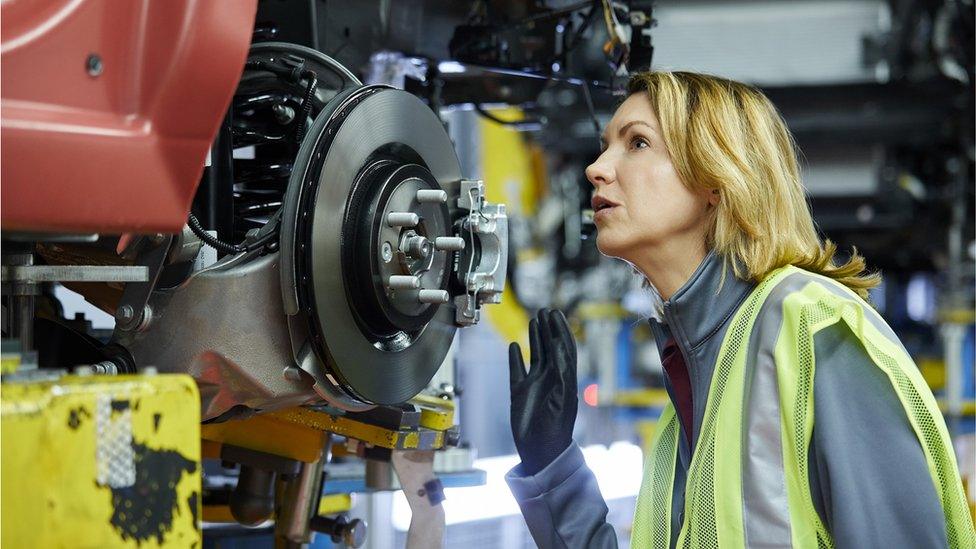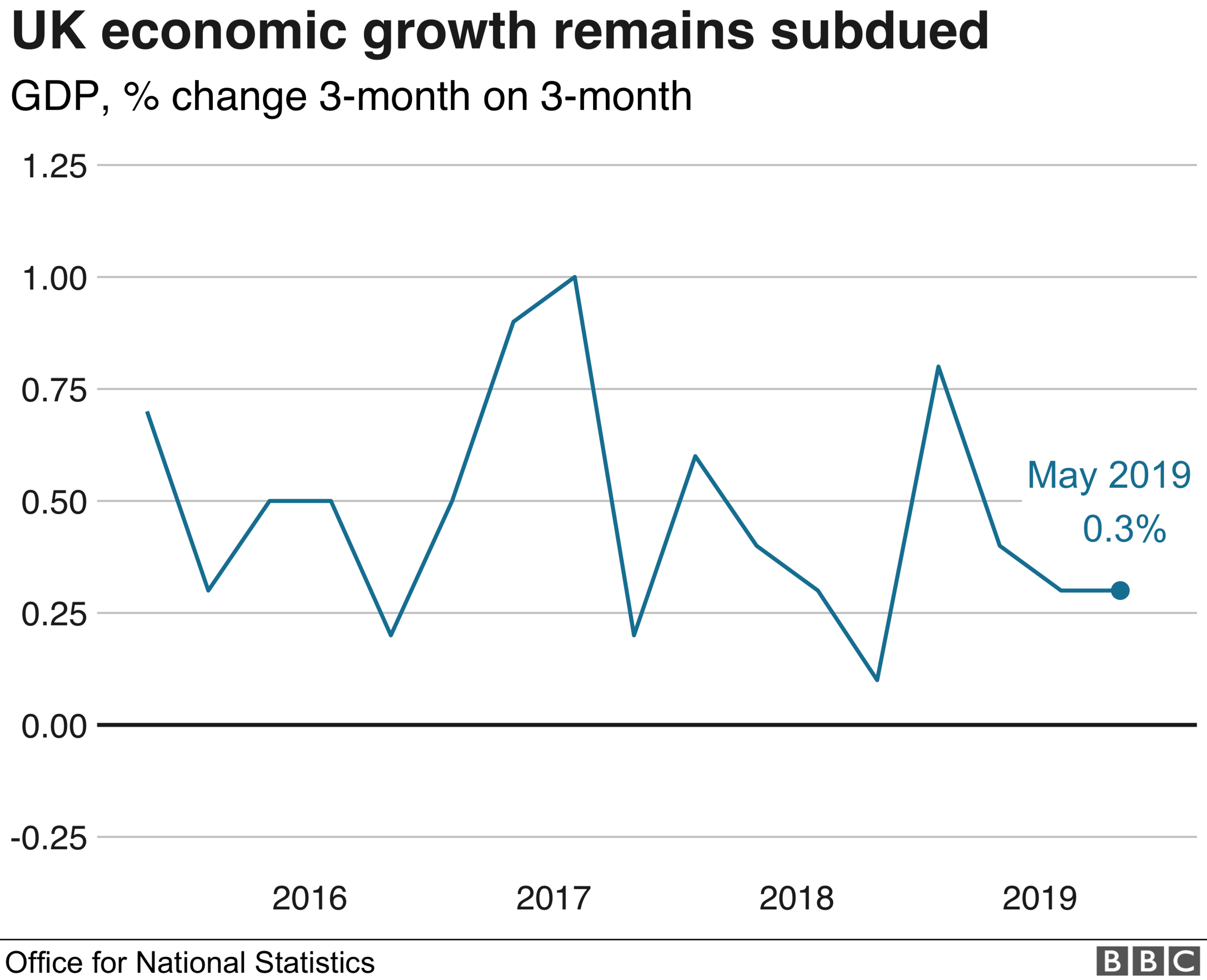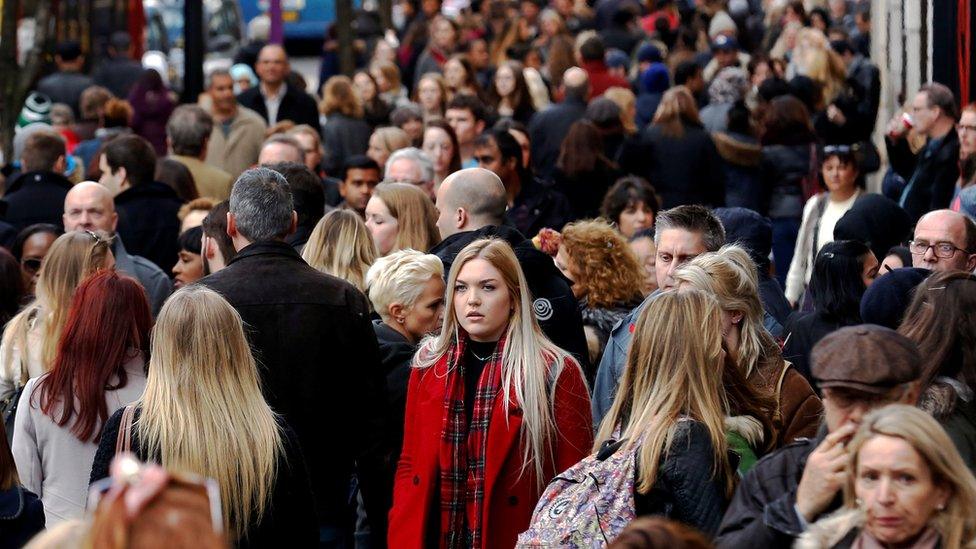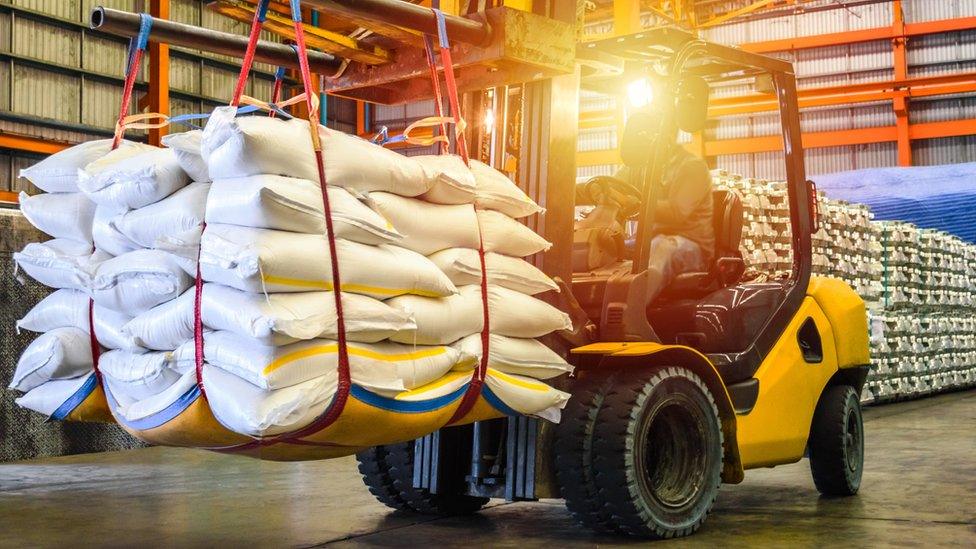UK economy returns to growth but slowdown fears persist
- Published
- comments

The UK economy returned to growth in May after shrinking in April, but the news failed to allay fears of a future slowdown.
The economy grew 0.3% from the month before, after declining 0.4% in April, according to the Office for National Statistics (ONS).
Growth for the three months to May was 0.3%, with all sectors showing growth.
But economists say that June's growth figures will have to be strong to avoid contraction in the second quarter.
A partial recovery in car production, which had fallen sharply in April, was the main reason for the economy's upturn in May, said Rob Kent-Smith, head of GDP at the ONS.
Factory shutdowns designed to cope with disruption from a March Brexit had slashed UK car production in April by nearly half.

However, despite this rebound, the levels of output in the car industry are below those seen in the months leading up to April 2019, the ONS said.
"GDP grew moderately in the latest three months, with IT, communications and retail showing strength. Despite this, there has been a longer-term slowdown in the often-dominant services sector since summer 2018," Mr Kent-Smith added.
In May, growth in services was flat, following growth of 0.1% in April.

Analysis
Faisal Islam, economics editor
A return to work in car factories that shut down in preparation for a no-deal Brexit drove a return to growth in the economy in May of 0.3%. But that rise did not make up for all the fall in the previous month.
Monthly figures are volatile and should be taken with a pinch of salt. However, against a backdrop of a marked softening in a slew of surveys of manufacturing, services and retail, there is an indication of an economy stalling and possibly contracting in the second quarter that has just ended, between April and June.
In the three months till May, however, growth was higher than expected because of a better March than had been previously calculated.
The impact of stockpiling, though, can clearly be seen in the big economic figures. Sterling has fallen more than 5% in recent weeks against the world's three major currencies, on expectation of lower interest rates for longer, political uncertainty and rising expectations of a no-deal Brexit.

Ben Brettell, senior economist at Hargreaves Lansdown, said the latest figures suggested the economy grew overall in the second quarter, although probably at a much slower rate than the 0.5% recorded in the January-to-March period.
Those second-quarter figures, covering April to June, are due to be released on 9 August.
"Storm clouds look to be gathering over the UK economy, as consumers and business remain hamstrung by Brexit uncertainty," he added.
Last month, the Bank of England said it expected economic growth to be flat in the second quarter of the year.
- Published10 May 2019

- Published2 May 2019

- Published1 April 2019
